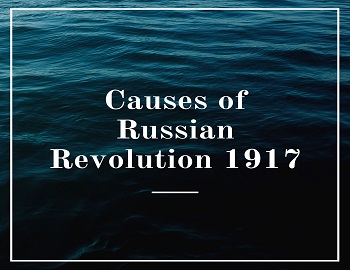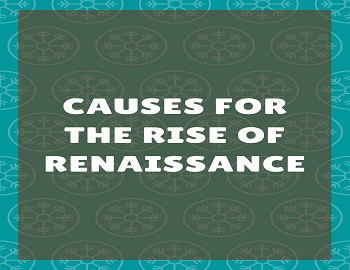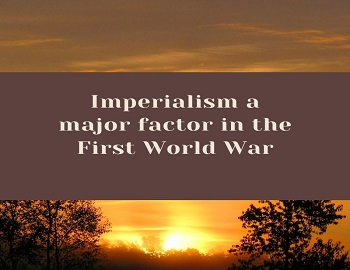Table of Contents
Causes of Russian Revolution 1917:
The Russian Revolution was the most important event in the history of the twentieth century after the French Revolution of 1789. The French Revolution had imparted the message of liberty, equality and fraternity to the world, while the message of equality was imparted by the Russian Revolution in the social and economic aspects of human life. Russian Revolution not only ended the despotic monarchial rule of the emperor and established democracy, but also put an end to the power of aristocrats, capitalists and landlords in social, economic and agricultural fields, and established the dictatorship of the proletariat and peasants. It gave a concrete shape to the ideology of socialism for the first time in the world.
The following were the main causes responsible for The Russian Revolution of 1917-
Miserable Condition of Farmers:
| Russian Revolution of 1917 was an economic revolution because of the fact that the miserable condition of the farmers played a vital role in bringing about this revolution in Russia. The miserable conditions of the farmers are clear from the following points- (I) The farmers had to work as slaves on the lands and much of their produce went into the hands of the higher classes. Though serfdom was abolished in 1961, yet the condition of the farmers remained miserable. (II) A large number of farmers owned only 21/2 acres of land, used primitive tools and methods of cultivation. The state was least interested in their improvement. (III) In Russia the burden of taxation also fell on farmers and they had no money to make improvements in their lands. Most of them could not get even two square meals a day. |
Miserable Condition of the Workers:
| The miserable condition of workers also played a vital role in bringing about the revolution of 1917 in Russia. The miserable condition of the workers is clear from the following points- (I) The workers had no political rights, nor had they any hope of reforms. (II) The workers could not set up trade unions to protect their interest. (III) They had to work for 12-14 hours a day, but their wages were very low- so much so that they could hardly make both ends meet. (IV) As a result of the Industrial Revolution in Russia many capitalists invested huge capitals in various industries to earn rich profits. It is estimated that more than fifty per cent of the capital for investment came from foreign investors who were more interested in making huge profits than in improving the conditions of the workers. Both the Russian and foreign capitalists exploited the workers for their selfish ends. |
Autocratic Rule of Czar:
| The autocratic rule of Czar Nicholas II was very much responsible for the Revolution of 1917 in Russia. It is clear from the following points- (I) Nicholas II believed in the Divine Right of Kings and had no interest in the welfare of the people. He had all powers of the state in his hands. (II) He was completely under influence of his minister Plehov who was against all kinds of Reforms. (III) The immoral monk Rasputin was in the good books of Czar and his beautiful queen, Czarina. He was called the ‘Holy Devil’. He always encouraged the Czar to follow and support the oppressive and reactionary policies of the Czar. This created great resentment among the people against the Czar and his corrupt bureaucracy. (IV) Czar’s rule was both ruthless and oppressive. He suppressed the Russian Revolution of 1905 through oppressive means. (VI) Moreover, the Czar had established a vast empire by conquering different nationalities. The people of these conquered areas were forced to change their cultures. The result was that they also became hostile to the Czar. (VII) The Czar incurred vast expenses on the wars, which brought about a new financial burden on the people. The result was that the people got prepared to overthrow the Czar and his inefficient government. |
Intellectual Revolution:
| Liberal ideas from western Europe had been entering Russia for the past few years and the Czar and his reactionary officials left no stone unturned in strangling them, but even then they spread here. Russian novelists such as Tolstoy, Dostoevsky and Turgenev drew people’s attention towards the shortcomings of Russian life. Their ideas brought about a political awakening among the people and the educated classes began to demand political rights. Besides them, the socialist ideas of Karl Marx, Maxim, Bakunin and Gorky influenced the peasants and workers. At this time Nihilism raised its head in society and tried to wipe the old order out. |
The Revolution of 1905:
| The Russo-Japanese war was fought in 1904-1905, and Russia was defeated at the hands of a small nation like Japan. Russia defeats first in the Crimean war and then in the Russo-Japanese war revealed the incompetence of the government before the public and highlighted the need for reforms. When there was chaos in the government the workers took resort to strikes and the peasants expressed their discontent through riots. On Sunday, January 22, 1905, about 150 thousand workers under the leadership of Father Gapon staged a demonstration before the Czar for the acceptance of their political and industrial demands. The aim of this demonstration was to present to the Czar at his winter palace a memorandum expounding the political and industrial rights of the people. Gapon was a brave clergyman but unfortunately, his association was a ‘police association’. The common people still believed that the Czar was their well-wisher, so during the demonstration the workers, their wives and children carried large pictures of Czar with them. After a peaceful demonstration when they were marching forward the soldiers of the Czar attacked these unarmed people and killed 130 of them. Gapon did not receive any injury but later on, the revolutionaries killed him in 1906, for they believed that he was a government spy. This incident of ‘Bloody Sunday‘ of 1905 has a significant place in Russian history. This is also known as the 1905 Revolution. This event was indeed a prelude to the October Revolution of 1917. |
The Role of the First World War:
| The First World War definitely played a significant role in Russian Revolution. If the First World War would not have occurred the time period for revolution would have been extended and even the revolution could be averted considering the new situation which had appeared in Russia. In fact, the Russian Government took the initiative for some political and economic reforms. This situation was going against the condition of revolution in Russia. That’s why liberal members in Duma expressed their view that if the existing reforms would continue the old system will be gradually strengthened. Even Lenin was concerned about the agrarian reforms being continued under Stolypin. Due to these reforms, a large number of peasant population could be taken away from the path of revolution. Furthermore, as the experience gained during the revolution of 1848-49 and during the counter-revolution brought under Stalin amply proved that the force of the revolution was not so powerful in themselves which could give birth to changes essentially. So it was the First World War that brought a drastic change in the situation. |









Comments (No)